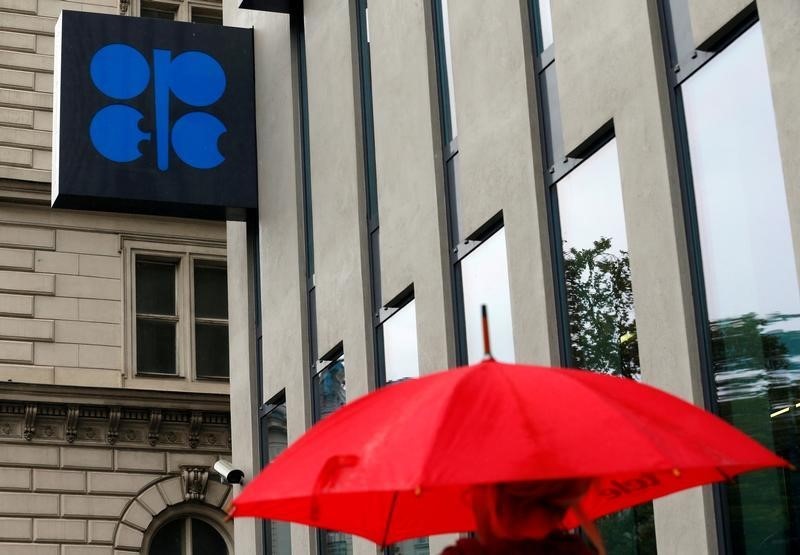(Bloomberg) -- Explore what’s moving the global economy in the new season of the Stephanomics podcast. Subscribe via Apple Podcast, Spotify or Pocket Cast.
Welcome to Friday Asia. Here’s the latest news and analysis from Bloomberg Economics to help get you through to the weekend:
- OPEC reached an agreement that adjusts its official production targets, but removes few barrels from a market that’s forecast to return to surplus early next year
- The Fed and President Donald Trump may be at loggerheads over interest rates, but they have one thing in common right now: the resilient U.S. labor market is helping both be more patient. Tonight’s employment data should signal that jobs growth remains buoyant
- Fed officials won’t allow the 2020 presidential election to sway their monetary policy decisions and will keep rates on hold for the next two years, according to economists surveyed by Bloomberg
- U.S. trade with China extended its slide in October as goods imports from the nation fell to a fresh three-year low amid prolonged talks between the world’s largest economies on a trade deal
- Early indicators for China’s economy continued to point to overall weakness in momentum for the seventh straight month in November, despite some signs of improvement. Both the official and Caixin manufacturing PMI beat expectations and were in expansionary territory, reflecting some letup in economic pain. But, considerable headwinds remain, writes Qian Wan
- India’s central bank defied expectations for a rate cut, preferring to keep its powder dry, and as Dan Moss writes, ended the year as it began: with a shock
- The global economy is struggling to find its way out of the slow lane, according to Bloomberg’s global GDP growth tracker. The soft reading for 4Q supports the view that the global economy remains in the doldrums, although a major downturn is unlikely, write Dan Hanson and Tom Orlik.
- As Hong Kong’s protesters gear up for another mass march downtown this weekend and possibly a strike next Monday, some of those who have fought on the front lines are reassessing their strategy
- Five weeks since Mario Draghi retired from running the ECB, finding an outright fan of his legacy of negative rates has become a lot harder. Sparse communication on monetary matters by his successor, Christine Lagarde, hasn’t dispelled that impression
- President Emmanuel Macron has vowed to reform the French pension system where many of his predecessors have failed in the face of fierce public resistance. Again, unions plan a series of strikes
- Terms of trade: Phil Hogan has the reputation of being a behind-the-scenes power broker. He will need those skills in his new role as EU trade commissioner, seeking to defuse tensions with Trump and hammer out a deal with the U.K. after Brexit
